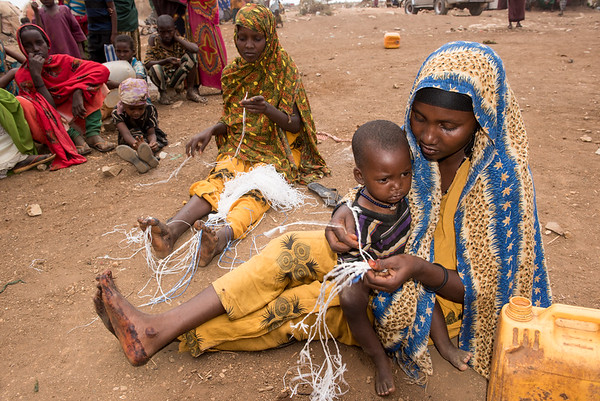Over 300,000 displaced by conflict in Somalia in 2018-NRC

By Fauxile Kibet
SUMMARY:
- 320,000 displaced in 2018 up from 202,000 in 2017
- Lower Shabelle region hardest hit
- Over 2.6 million currently displaced within Somalia
Over 300,000 people were uprooted from their homes by conflict and insecurity in Somalia in 2018 up from 200,000 in 2017, the charity Norwegian Refugee Council has said.
“The conflict is getting worse for civilians, making thousands more homeless. If this worrying trend continues, it could lead to catastrophe,” warned Evelyn Aero, Regional Adviser for the Norwegian Refugee Council (NRC).
According to the Protection and Returning Monitoring Network, an arm of NRC, 320,000 in Somalia were displaced by conflict and insecurity translating to an increase of over 100,000 in the preceding year.
Areas hardest hit by the fighting were in the Lower Shabelle region, which are areas still heavily impacted today. The region has witnessed sustained military activity amid an ongoing war against the militant group Al-Shabaab by joint AU/Somali and US forces.
“These families take refuge in crowded camps for displaced people in Somalia, living in flimsy shelters. They’re vulnerable to malaria, evictions, insecurity and gender based violence. Young children are especially vulnerable to malnutrition and disease. They urgently need more aid to survive,” said Aero.
Overall 2.6 million Somalis are currently displaced within the country. Besides conflict and insecurity, other causes of displacement include drought, flooding and evictions, among others.
Conflict continues to cause unintentional damage to property and civilian casualties noted the humanitarian organization and called on all parties to the conflict to respect International Humanitarian Law, and take all possible measures to protect vulnerable civilians, and reduce mass displacement.
This year’s UN humanitarian aid appeal for Somalia seeks $1.08 billion, but so far only $67 million of this plan has been funded and the NRC is now warning that if aid is not increased, some lifesaving programmes such as for food, water or health care may be cut back.